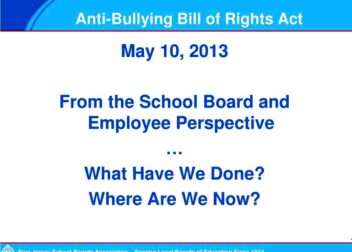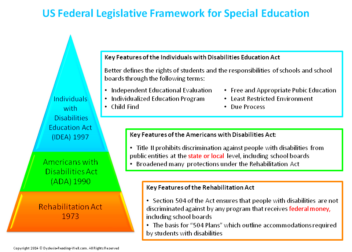Pennsylvania’s Anti-Bullying Laws for Schools
Reveries of past schooldays comes hand in hand with warm memories, sometimes even bitter-sweet ones. Yet for certain individuals, these were moments laced with sadness spun from an ugly web of bullying acts that took place within their campuses. However, Pennsylvania has put some impressive moves to protect children from being afraid of attending schools because they are bullied by their fellow students. Such legislations are not only meant to set laws or standardize procedures but also to defend every child’s integrity and wellness. They ensure that educational institutions offer a secure nurturing surrounding where learners can develop intellectually without being threatened at all. Beyond mere politics then; this is one issue that focuses on our most innocent citizens- children.
Definition of Bullying Under Pennsylvania Law

For effective redress of bullying, it is essential to have an understanding of what it entails. For instance, if we rely on the definition offered by the Pennsylvania Statute, bullying refers to any intentional act that is carried out electronically, in writing, orally or physically, or a series thereof that…
- Is directed at another student or students.
- Occurs in a school setting, including the school itself, on a school bus, or at a school-sponsored event.
- Is severe, persistent, or pervasive enough to create an intimidating or hostile school environment.
By employing this definition, one can easily differentiate bullying from other types of misunderstandings or conflicts. This behavior goes beyond mere teasing and occasional disputes, it is all about inflicting harm and domination. This is why it is very important for parents, teachers and students to identify these signs early enough. This takes me to the time when I was in school and a classmate of mine was really bullied just because he was different. If he had known how bullying looks like, his life could have been different entirely.
Obligations of Schools to Address Bullying
When it comes to tackling bullying, schools have a great responsibility in Pennsylvania. Or rather, learning havens where students can be safe. Thus, herein are what is required of them:
- Develop Clear Policies: Every school must have a written anti-bullying policy. This policy should be easily accessible to students, parents, and staff.
- Training and Awareness: Schools must provide training to staff on how to recognize and respond to bullying. This includes teachers, bus drivers, and even cafeteria workers. Everyone should be on the same page.
- Reporting Mechanism: Schools need to have a straightforward process for reporting bullying incidents. This helps in ensuring that issues are addressed promptly and fairly.
- Disciplinary Actions: The policies should outline clear consequences for those found guilty of bullying. It’s important that these consequences are fair and aim to correct the behavior rather than just punish.
Because of that, they are meant to guarantee that each and every child will fit in the school system. For this reason, I usually ponder on the fact that if only such actions were adopted during my days in school then a lot of pain could have been spared. Schools must not only punish inappropriate behavior but also produce an environment which promotes acceptance and worthiness such as everyone is embraced and appreciated.
Steps for Reporting and Investigating Bullying Incidents
When atrocities of bullying occur, it’s like a burden both students and their parents shoulder upon themselves. However, knowledge about reporting procedures makes it feel less wounding. Pennsylvania has laid down distinct guidelines that govern reporting and probing into bullying cases so that every child is not left out alone. This is the procedure:
- Initial Reporting: Students or parents should report the incident to a trusted teacher, school counselor, or administrator. It’s important to act swiftly. A friend of mine once said, “Silence only gives bullies power.”
- Documentation: When reporting, it’s helpful to document the details. This includes dates, times, locations, and what was said or done. This information can be crucial in the investigation.
- Formal Investigation: Once reported, the school must investigate the matter promptly. This means talking to all parties involved, including witnesses. Transparency in this process helps everyone feel more secure.
- Follow-Up: After the investigation, schools should follow up with both the victim and the perpetrator to ensure that the issue has been resolved. It’s essential for victims to feel supported and safe moving forward.
At each stage of this process, we aim to create a safer space. A classmate of mine had reported an incident of bullying and she was very anxious about it. However, the school’s reaction was swift and compassionate which changed her life completely.
Preventative Measures and Educational Programs
On October 2023 you are educated on data. Schools in Pennsylvania should promote numerous prevention strategies and teaching initiatives that will enhance positive school environment. This encompasses the following:
- Awareness Campaigns: Schools often organize events or campaigns that educate students about bullying, its effects, and the importance of empathy. I recall a school assembly where students shared stories, fostering understanding among peers.
- Peer Support Programs: Initiatives where older students mentor younger ones can create bonds that discourage bullying. Building friendships across grades can help bridge gaps and reduce isolation.
- Workshops for Teachers: Continuous training for teachers on recognizing the signs of bullying and effectively intervening is crucial. Teachers can be powerful allies when they know how to respond.
- Creating Safe Spaces: Schools should promote environments where students feel comfortable discussing their feelings. Safe spaces, like counseling centers, can encourage students to seek help when they need it.
The steps taken are not just aimed at stopping bullying but also promoting community. This is why my heart swells with joy whenever I see students championing different causes. This is how we build a gentler society.
Rights of Students and Legal Protections
Every single student deserves to feel secure and appreciated in their own educational establishments, this is what the anti-bullying policies of Pennsylvania are all about. Knowing these rights and legal defenses can give power to both students and parents. Let’s delve in deeper:
- Right to Report: Every student has the right to report bullying without fear of retaliation. It’s vital that schools create an environment where students feel confident to speak up.
- Right to an Investigation: Upon reporting, students are entitled to a thorough investigation. Schools must take these reports seriously and act accordingly.
- Right to Support: Students who experience bullying should receive appropriate support, including counseling and intervention services. Support can be a lifeline, especially for those who feel alone.
- Legal Protections: Pennsylvania law provides protections against discrimination and harassment. If a school fails to act, parents can escalate the matter to local education authorities or seek legal recourse.
The fact that we have laws to protect our children is a comforting thought. It often strikes me how such safeguards may serve as shields for the defenseless and foster an atmosphere fit for education. No one should be feeling unsafe or undervalued!
Consequences for Students Who Bully
Bullies do not get away with harming their victims. Even bullies suffer from the bullying habit. Pennsylvania seeks to address bullying in two ways which are accountability and rehabilitation. Do not mistake this for punishment because the aim is to create a sense of responsibility. Students who engage in bullying may face:
- Disciplinary Actions: Schools have clear policies outlining the disciplinary measures for bullying. This can range from verbal warnings to suspension or even expulsion, depending on the severity of the behavior.
- Mandatory Counseling: Often, students who bully may be required to attend counseling sessions. This provides them with an opportunity to understand the impact of their actions and learn healthier ways to express themselves.
- Restorative Justice Programs: Some schools implement restorative justice practices, where bullies are encouraged to engage in dialogue with their victims. This helps them grasp the emotional harm they’ve caused.
- Impact on Future Opportunities: A record of bullying can affect a student’s chances for future opportunities, such as scholarships or even college admissions. I’ve seen how one moment of unthoughtful behavior can shadow a student’s future.
Addressing bullying positively as a community is very important. When students understand what they are doing, then things will be different. This is because anyone has the chance to improve or modify themselves.
Frequently Asked Questions About Pennsylvania’s Anti-Bullying Laws
As we navigate through the complexities of bullying and its consequences, questions arise at times. The following set of frequently asked questions may provide insights into Pennsylvania’s anti-bullying laws:
- What defines bullying in Pennsylvania? Bullying is defined as intentional actions directed at another student that create a hostile environment, whether in person or online.
- How can I report bullying? Reports can be made to a trusted teacher, school counselor, or administrator. It’s important to document the incidents for a thorough investigation.
- What happens after I report bullying? Schools are required to investigate promptly and take appropriate action based on their findings. You should receive updates on the progress.
- Can schools punish students for bullying outside of school? Yes, if the bullying negatively impacts the school environment or the victim’s experience at school, it can be addressed.
In October 2023 data is what you have been trained on moreso than anything else. By understanding these laws, students and their parents are more likely to act on them. Knowledge can help create a safer and supportive school environment.
Conclusion
To sum up, the anti-bullying laws of Pennsylvania provide an essential framework for protecting students and promoting a safe learning atmosphere. They indicate that bullying is not only a stage or part of growing; it has serious ramifications both for the victims and the offenders. In order to avoid this kind of situation in our schools we must teach people how to be more empathetic instead of being afraid. We need to create an environment where every child can learn without fear. It can be achieved through collaboration among parents, schools and communities in general so that kindness can reign supreme over all other values.” When I think about my school days I wish every kid had what I sometimes lacked: A safe place with friends who would accept them no matter what.” Let us make every student’s dream possible.
To conclude, Pennsylvania’s anti-bullying laws are a significant framework designed to protect students and support a secure learning environment. These laws remind us that bullying is not simply a passing phase in life or growing up; it has substantial consequences for both victims and perpetrators. As such, we must promote empathy and understanding within our communities so that schools can be places of growth rather than fear. Every child ought to have their right to learn without intimidation whatsoever. Schools, parents and communities should work hand in hand to ensure a culture in which kindness reigns supreme. Reflecting on my own past schooling experiences, I wish what I sometimes found difficult for every child: a feeling of security and acceptance. Therefore let us make it possible for every student out there!


